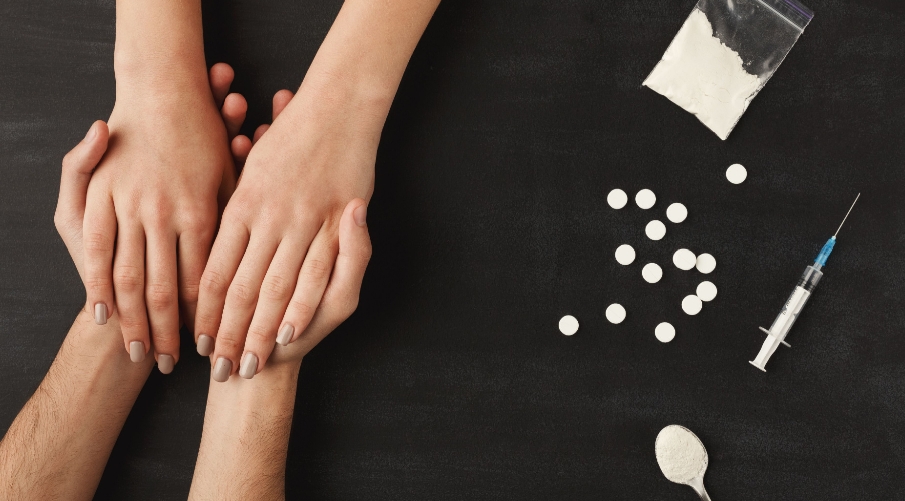Addiction is a disease that affects millions of people worldwide, regardless of their gender, sexual orientation, or social status.
Gay and LGBTQ+ individuals often face unique challenges when it comes to addiction, including stigma, discrimination, and the risk of social isolation.
Seeking professional help for addiction is crucial, and there are various treatment options available that can help individuals overcome their addiction and achieve long term recovery.
Addiction Treatment and Recovery: Guide for Seeking Professional Help

The Importance of Seeking Professional Help
Addiction is a complex disease that affects the person spiritually, emotionally, physically, and mentally, especially the mind and body.
It’s not something that you can overcome on your own or simply “will” yourself to stop. You can try, but it’s almost impossible to do it alone.
Addiction requires professional help, just like any other medical condition.
Professional addiction treatment can help individuals detox safely, manage withdrawal symptoms, and address underlying mental health issues that may be contributing to their addiction.
Additionally, addiction treatment provides a supportive environment where individuals can learn new coping skills, build healthy relationships, and develop a sense of self worth and purpose.
Addiction treatment can also help individuals identify and address the underlying issues that may be driving their addiction, such as trauma, stress, or past experiences of discrimination.
5 Treatment Options for Addiction:
There is no one size fits all approach to addiction treatment.
Different individuals may require different types of treatment depending on their unique circumstances and needs.
Some of the most common treatment options for addiction include:
1. Inpatient Treatment.
Inpatient or residential treatment involves living at a treatment facility for a set period, usually 30 to 90 days.
Inpatient treatment provides a structured environment where individuals can focus on their recovery without the distractions and triggers of the outside world.
Inpatient treatment typically includes individual and group therapy, medical care, and access to support groups.
2. Outpatient Treatment.
Outpatient treatment involves attending therapy and support group sessions at a treatment center while continuing to live at home.
Outpatient treatment may be a good option for individuals with mild to moderate addiction who have a strong support system at home.
Outpatient treatment may also be a good option for individuals who have completed inpatient treatment and need ongoing support.
3. Medication Assisted Treatment.
Medication Assisted Treatment, or MAT, combines medication with behavioral therapy to treat addiction.
MAT can be effective in treating opioid, alcohol, and tobacco addiction.
MAT may involve medications that reduce cravings and withdrawal symptoms, such as buprenorphine or methadone.
4. Behavioral Therapy.
Behavioral therapy focuses on changing negative thoughts and behaviors that contribute to addiction.
Different types of behavioral therapy may be used, including Cognitive Behavioral Therapy (CBT), Dialectical Behavior Therapy (DBT), and Motivational Interviewing (MI).
Behavioral therapy may be provided in individual or group settings.
5. Support Groups.
Support groups such as Alcoholics Anonymous (AA) or Narcotics Anonymous (NA) provide a supportive community of individuals in recovery.
Support groups may be especially beneficial for individuals who have completed treatment and need ongoing support to maintain their recovery.
How to Find Help at an LGBT-Focused Rehab?
Addiction is a serious disease, but there is hope for recovery.
If you or a loved one is struggling with addiction, seeking professional help is the first step towards recovery.
One of our editors had a past experience with addiction recovery and she is in the LGBT community.
She says it was insanely hard to find a place that truly offers the expertise and respect that she was looking for. Then, after 3 tries she found a rehab center that she was really satisfied with.
No Matter What Recovery is a gay rehab center in Los Angeles that provides LGBTQ+ individuals with a safe and supportive environment to overcome addiction.
Their experienced team of professionals provides personalized treatment plans that address the unique needs of each individual.
At No Matter What Recovery, they offer a range of addiction treatment programs, including inpatient treatment, outpatient treatment, medication assisted treatment, and behavioral therapy.
Their programs are tailored to meet the unique needs of each individual and are designed to provide a comprehensive approach to addiction treatment.
If you or a loved one is struggling with addiction, don’t wait to seek help.
Contact No Matter What Recovery today to learn more about their addiction treatment programs and how we can help you achieve lasting recovery.
Or speak with one of our experts in the Find Life Coach section.






